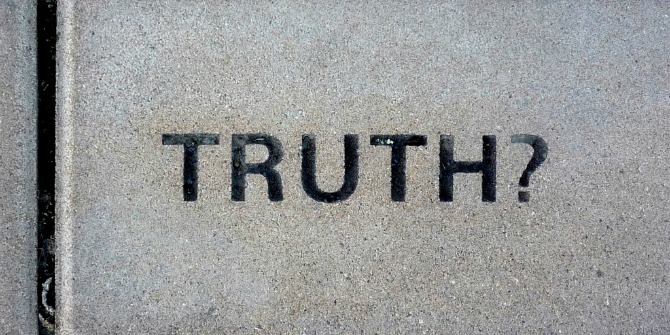Today, the Advisory Council to Google on the Right to be Forgotten holds its last public meeting in Brussels. The Council, which was set up by Google following the European Court of Justice’s ruling that a Spanish citizen had the right to ask the search engine to remove links about him from search results, has held meetings in Madrid, Rome, Paris, Warsaw, Berlin and London, inviting experts representing a range of organisations and opinions to contribute evidence and ideas on how best to handle these new obligations. So far, Google has received more than 160,000 requests for removal, and has removed 41.8% of the URLs that it has evaluated.
Google describes its meetings as a “series of discussions on how one person’s right to be forgotten should be balanced with the public’s right to information,” and indeed one of the reasons the debate around this topic has become so heated is that it pits the right to privacy against the right to freedom of expression, and as the meetings have shown, there are many passionate defenders of each.
The ruling has also been criticized for its vagueness in defining what should be removed, and for its ineffectiveness, given that all links are visible through Google sites based outside Europe. Some argue that the principle is valid, but that it shouldn’t be Google making the calls, and that the original publisher of information should be involved.
 Following the meeting in London on October 16, we spoke to Advisory Council member Peggy Valcke, research professor at KU Leuven in Belgium, about her experiences so far.
Following the meeting in London on October 16, we spoke to Advisory Council member Peggy Valcke, research professor at KU Leuven in Belgium, about her experiences so far.
What are you finding to be the most challenging issues?
Most challenging are the so-called grey zones, a couple of which were mentioned at the London meeting. What if somebody planning to run for election tries to clean up their past by getting rid of blog posts which supported a specific political ideology that they no longer hold: how do we deal with that? Rather than looking at the role currently played by the person in public life, we may have to start from the criterion: is the information in the general interest?
Imagine a private citizen posts on a blog and has certain ideological impact or connotations in that sphere. If it’s political speech (for which the European Court of Human Rights leaves very little margin for interference), we might argue that it’s in the general interest to keep the link, even though today the person is a private figure, for instance. You can’t predict the future: information that seems irrelevant in the present might become of interest to the public at a later date.
At one of the meetings, somebody mentioned the possibility of restoring links by default after a certain number of years. Whether or not this is technically possible, the question is, who is going to ask to have links restored? Who will act on behalf of the public interest in cases where information becomes relevant in the future?
Another issue that came up at meetings across Europe is the local versus global dimension. This brings up a variety of jurisdictional questions: should you treat requests on the basis of national law, should you seek a harmonised approach, what laws do you take into account, is it the law where the requestor is based? Currently, search engines focus on the country where the requestor came from, but links are removed from all European services.
One of the biggest questions in this discussion seems to be: should Google be making these decisions?
For the moment they have to, because they are considered the data controller and they are responsible for taking requests and for no longer processing data which are considered inaccurate, inadequate, irrelevant or excessive, as stated by the court ruling.
If anybody besides the search engines is making the decision, there are many practical questions that pop up. Who will pay for that body? Should it be a state body or a self-regulatory body? What would be the role of the DPA? And it’s arguable that as search engine operators are considered data controllers that deliver a certain service and if this service is malfunctioning or has negative effects then they are the ones that need to remedy that.
The fundamental issue seems to be the balance between the right to freedom of expression (FoE) and right to privacy. Does this ruling strike an appropriate balance?
European human rights treaties and national constitutions in Europe indeed recognize on the one hand a right to FoE and right to information and on the other hand a right to privacy, but there is a separate right recognised in EU law which is the right to data protection. Privacy in Europe is also interpreted as control over your personal data, so you can protect your data even if it is sensitive or if you are are in the public domain. So the ruling is based on data protection law, which says you can only process personal data if there’s a legal ground.
The data protection directive does refer to FoE, but the court only refers to the general interest of the public to have access to that information and not specifically to Article 10 of the European Commission on Human Rights or FoE because, in my opinion, this was not an argument put on their table. Courts can only judge on the basis of the facts and arguments put before them by the involved parties, and La Vanguardia was not a party before the court in Luxembourg, nor did a journalistic organisation intervene voluntarily to say hey, listen, if you remove links this interferes with our freedom of expression. It might be that in future cases, the press associations or a newspaper will be a party in a case and a court might come to a slightly different conclusion. At a national level, we are already seeing cases like that being brought before the courts.
Overall do you think the ruling is a positive development?
The question has been posed several times by journalists – do we think the court ruling is a good or bad thing? It depends on how it’s implemented. Search engines should definitely be wary about potentially chilling effects on freedom of expression; the right to erase certain search results should not turn into a censorship instrument and a tool for people to clean up their past if there are things that should remain to be known to the public at large – serious crimes, financial fraud or the like. That is why the court in the Costeja ruling referred to the interest of the general public in having access to information. But for many people – those with no public role in society – I think it can be a positive thing.
Imagine you are confronted with search results showing up prominently that put you in a bad light because of something that happened a long time ago, or because someone is (anonymously) spreading false rumours about you, and wherever you go, among friends, neighbours, a new environment, you are looked at suspiciously. Or imagine if you are linked to an event that received a lot of publicity, either in an inaccurate way (but attempts to rectify that were not successful or would be too burdensome) or in an accurate way (but you prefer no longer to be reminded about it), it can be intrusive if that still constantly comes up when people look you up on the Internet. In that sense, one could say that the remedy offered by the court ruling could be a way to perhaps make the Internet more civilized. We also banned the humiliating pillory in the 19th century, didn’t we? The challenge in implementing this court ruling is – as we have heard over and over during the hearings – to strike the right balance. That’s what we are hoping to shed more light on in our report.
This post gives the views of the author, and does not represent the position of the LSE Media Policy Project blog, nor of the London School of Economics.





